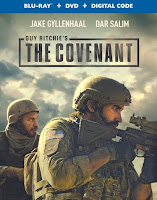the traveler's resource guide to festivals & films
a FestivalTravelNetwork.com site
part of Insider Media llc.
Reviews
June '23 Digital Week II
- Details
- Parent Category: Film and the Arts
- Category: Reviews
- Published on Thursday, 22 June 2023 00:51
- Written by Kevin Filipski
Guitarist Gary Lucas Explores Virtuosity at The Loft In City Winery
- Details
- Parent Category: Film and the Arts
- Category: Reviews
- Published on Wednesday, 21 June 2023 13:43
- Written by Brad Balfour

Gary Lucas with Feifei Yang
Sunday, May 28th 2023
The Loft at City Winery25 11th Ave. (at 15th St.)
After critically acclaimed guitarist Gary Lucas sent out a notice of a gig in The Loft at City Winery — “From Captain Beefheart to Buckley and Beyond” — I perked up. When it comes to the notion of a virtuoso, Lucas fits that idea perfectly. He can do slide guitar immaculately, play around with foot pedals or knobs to create a desired effect and he has incredibly facile fingering skills. He applies all his technical skills to a broad range of styles, yet doesn’t make it seem like three different guitarists at work.
With his intuitive skills finely honed and at peak performance, Lucas makes all the various styles in his wheelhouse mesh seamlessly. So I promptly arranged to go to the show. What an evening it turned out to be. It began with the screening of rare clips and the video for “Ice Cream for Crow.” Then Lucas ruminated about various touch points in his career, launching into “Lady of Shalott”— a lush piece combining acoustic guitar and voice.
Combining moments of kinetics and contemplation, Lucas defies labels and expectations — and so does his show. While some of the music he makes could be described as Americana — depending on the guitar he slings on — other tunes range from bluesy (his dark original “Dance of Destiny”) to avant garde. Of course, having worked with such a boundary-busting band leader as Captain Beefheart, Lucas stands apart from most musicians. No one has tested accompanists like the late master of undefinable sounds. As Lucas described, Beefheart would put his musicians through rigors that no other band leader ever did. For all of the other complicated things on which Lucas has dibs — such as composing music for film and television, scoring classic silent films like “The Golem” and playing with various avant-garde artists — his stage performance alternates between dramatic and contemplative. These seamless shifts are evident in his covers of Nino Rota’s Theme from Fellini’s “La Strada” and Beach Boy Brian Wilson’s “God Only Knows.”
After his term as Beefheart’s guitarist and manager, Lucas turned to forming his remarkable band, Gods and Monsters. Along the way, the late singer/songwriter Jeff Buckley became a part of the timeline, further demonstrating Lucas’ elasticity as both player and performer. In fact, as Gary described on stage, he was introduced to Jeff when Lucas was asked by late concept producer Hal Willner to work on a Tim Buckley tribute.
Tim, dad to Jeff, died way too young (at 28) but established a remarkable catalog. Lucas did a song and got a relationship with Jeff as part of the bargain. That turned into a collaboration which prompted a great song like “Grace” (co-composed with Lucas) and a moment when Buckley fronted Lucas’ band. Though that didn’t last long enough, it added a unique turn to Gary’s musical efforts.
All this combined to make for an evening rich in music ranging across all kinds of creative panoramas. Joined by singer/erhu player Feifei Yang, this evening’s show included versions out of Buckley’s catalog — “Grace” and Leonard Cohen’s “Hallelujah.” Added to those were two Beefheart compositions, an original song or two from across Lucas’ landscape, and a Chinese pop tune from the ‘30s (as sung in Mandarin by Yang).
Ever clad in his signature fedora, Lucas shouldered most of the evening solo. But when Yang accompanied him, the tone changed and offered a joyful touch to an intimate and engaging evening. Hopefully there will be another occasion soon to be surprised by the veteran performer’s song choices and stylizations.
Broadway Musical Review—“Camelot” Revival
- Details
- Parent Category: Film and the Arts
- Category: Reviews
- Published on Friday, 16 June 2023 18:57
- Written by Kevin Filipski
 |
| Phillipa Soo in Camelot (photo: Joan Marcus) |
June '23 Digital Week I
- Details
- Parent Category: Film and the Arts
- Category: Reviews
- Published on Wednesday, 07 June 2023 22:13
- Written by Kevin Filipski
More Articles...
Newsletter Sign Up



























